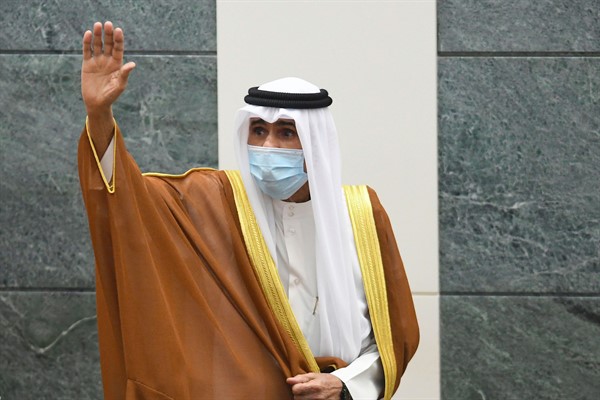Since legislative elections were held in December, Kuwait has seen continued infighting between the National Assembly—where opposition lawmakers are heavily represented—and members of the Cabinet, who are appointed by the emir and also have parliamentary seats. The prolonged standoff has ground the legislative process nearly to a halt, preventing the government from passing measures to deal with the COVID-19 pandemic and its economic fallout, including a law that would allow the state to borrow badly needed funds on international markets.
Kuwait is unique among Gulf Arab monarchies in that it has relatively free elections and an active legislature that can pass and block legislation, though the emir has the last word on most matters of state. Political parties are banned, which also makes it hard for the opposition to form a united front. In 2012, the opposition boycotted the legislature over controversial changes to the electoral system made by the emir at the time, Sheikh Sabah al-Ahmad al-Sabah. But the 2016 elections saw the return to parliament of an ideologically and socially diverse political opposition comprising Sunni Islamists, tribal figures and secular leftists.
In the run-up to the most recent polls in December, these opposition figures focused their campaigns on rooting out corruption and implementing economic reforms to prevent Kuwait from falling into a fiscal crisis, particularly given its difficulties since the start of the COVID-19 pandemic and the crash in global oil markets. Since the election, however, the opposition has turned its attention to grilling Cabinet ministers whose agendas they oppose in formal interpellation sessions.

